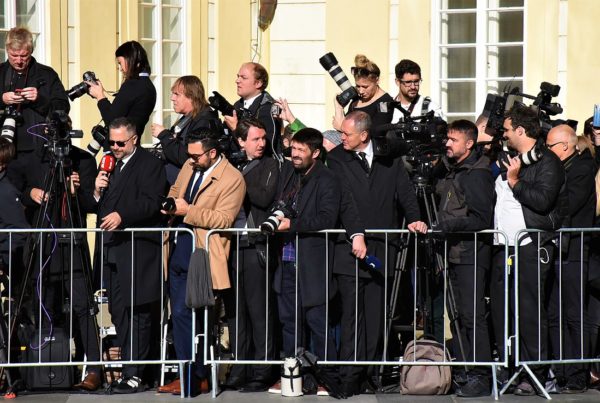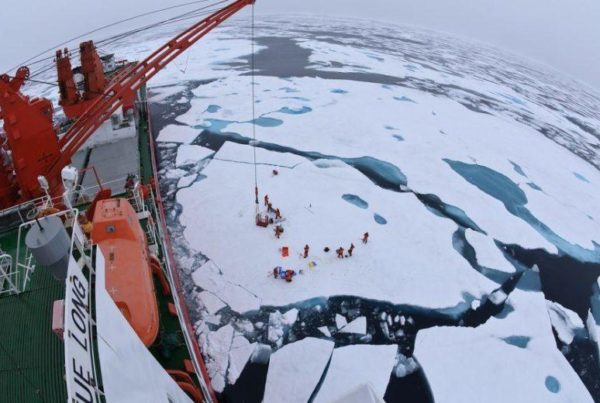By Stephanie Carvin (Originally published February 9, 2016 on opencanada.org. Re-printed with permission)
Canada’s military strategy in Syria and Iraq has officially changed. Now what? Here are five challenges it will need to address going forward.
Whether you agree or disagree with its reasoning, the Liberal government has taken Canada’s Iraq/Syria strategy in a new direction. Despite the criticism (much of which I share), the new policies are far from a disaster. Canada is making a clear commitment to provide aid in one of the most complex emergencies the world has seen. And we are keeping key military capabilities in theatre to assist our allies, such as refuelling and reconnaissance planes. Significantly, Canada will be putting more troops in theatre, including our Special Operations Forces, who have an international reputation for their effectiveness.
But announcing a policy is one thing; implementing it and achieving the goals the Liberals have set out is another. Indeed, there remain several challenges that the government faces in implementing its new policies that could threaten the success of its new strategy.
1. Incongruent interests between Canada and the Kurdish Peshmerga will likely trump training efforts.
The new policy makes clear that Canada’s efforts will remain on training the Kurdish Peshmerga to fight against ISIS troops. However, the interest of the Peshmerga and the West are incongruent in several ways. Most importantly, the Peshmerga are interested in establishing their own country, not liberating Syria and Iraq from ISIS or Assad. While the Peshmerga may be able to hold territory, they will not be willing or able to take on the broader ISIS fight. That task will almost certainly require the active participation of Sunni tribes that are understandably suspicious of the West following the withdrawal of U.S. troops from Iraq in 2011. The Liberals’ policy does not address training Sunni tribes, or the fact that the Peshmerga’s core mission (founding a Kurdish state) is directly opposed to that of Turkey, a NATO ally.
2. By pulling troops, Canada will have less influence overall – possibly undermining our ability to affect change.
Woody Allen once said that 80 percent of success is showing up. This is also true in coalitions. As noted above, our combat mission may have been largely symbolic, but it distinguishes Canada from other countries that have not provided military support. Critics sometimes observe that “access” via military participation is oversold, but being seen to be a team player is almost certainly going to give Canada more visible presence and ability to influence policies. Or to put it another way, “Oh, hey, it’s that country that just pulled all of their kinetic military support. Let’s definitely listen to what they have to say” – is generally not how diplomacy works in these circumstances.
3. Canada’s foreign policy infrastructure is still in recovery mode.
Global Affairs Canada is full of bright and determined individuals who are very capable, but it is worth remembering that it is also an institution that is just coming out of 10 years of cuts and neglect by the federal government. It has frequently been prevented from fully engaging with international organizations during this time. To suggest that GAC officials will suddenly be able to jump in and affect change is ambitious if not questionable for a department that is going to be in recovery mode for some time. This observation is not to diminish the capabilities of our foreign service, as much as it is to recognize that there is a lot of bridge-building and ground work to catch-up on in 2016 before we attempt taking the lead.
4. Those countries in the region that are accepting refugees in large numbers have good reason to cooperate with Canada, but may prove to be challenging partners.
In his remarks, Prime Minister Justin Trudeau described Syria’s neighboring countries as compassionate by taking in thousands of refugees. It is certainly true that these countries have faced an incredible challenge along their borders and within their societies as millions flee the violence in their country. But how “compassionate” are they? Refugees live in the margins of their societies, unwanted and often used as cheap labour. It is doubtful that many can count on the full protection of the law. Further, even when actively cooperating with Canada, many of these countries pose unnecessary challenges, such as burdensome exit visas. These countries are undoubtedly burdened, but they are also self-interested and may prove to be challenging partners for Canada’s efforts to work on refugee issues going forward.
5. ISIS may not be an existential threat, but it remains a threat to national security.
As the Liberals transition Canada’s policy from one focused on providing military support to one geared towards providing humanitarian assistance and training, it is imperative not to downplay the threat ISIS poses to Canada. Trudeau ended his remarks on Monday by noting that ISIS is not an existential threat to Canada. This is true, but ISIS is and will remain a threat to national security for some time. Calling the group “thugs” is not going to change that. Moreover, the threat is only likely to worsen as the group comes under further counter-terrorism pressure from Western and allied countries over the next year. Paris-style attacks in Canada by ISIS-inspired or ISIS-directed individuals would have devastating consequences for our economy, security and borders. Countering the domestic threat of ISIS falls outside of the Iraq/Syria strategy, and may be addressed in a revised counter-terrorism strategy down the line. Nevertheless, it befits the Liberals to realistically and responsibly convey the ISIS threat to Canada.
Stephanie Carvin is an Assistant Professor of International Relations at the Norman Paterson School of International Affairs.








